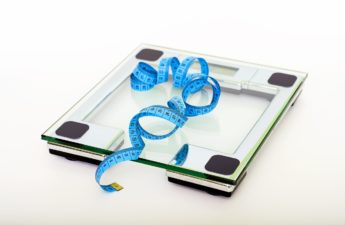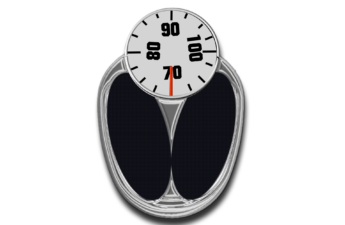Category: Weight Loss
It’s time to leave the Paleo Diet in the past: Recent studies have failed to support its claims
The Paleo Diet has been a worthwhile experiment, but at this point it seems likely that people following it might just be wasting money. Conventional, government-recommended diets offer comparable outcomes at a lower cost. In our view, it’s time to leave the Paleo Diet in the past.
Obesity in children is rising dramatically, and it comes with major – and sometimes lifelong – health consequences
Without intervention, many obese adolescents will remain obese as adults. Even before adulthood, some children will have serious health problems beginning in their preteen years.
Eating disorders are deadly: What are they, who’s at risk, and what can be done about it
Adolescence is also when eating disorders have the greatest negative effects on health. Five per cent of the general population in North America will suffer from an eating disorder in their lifetime, but few people seek treatment. The prevalence of eating disorders and struggles to access help highlight the need to increase awareness and decrease stigma.
Does exercise help you lose weight?
Exercise will help you lose weight and prevent you putting on weight again – it’s just that it won’t help you achieve your weight loss goals in isolation.
Ozempic helps weight loss by making you feel full. But certain foods can do the same thing – without the side-effects
Dietary changes have much fewer risks in terms of side effects, but the responses will take more time and effort.
Is menopause making me put on weight? No, but it’s complicated
When it comes to menopause and weight, it’s weight redistribution – not weight gain – that is actually a symptom. Research has confirmed menopause is linked to an increase in belly fat but not an increase in overall weight.
What’s the ‘weight set point’, and why does it make it so hard to keep weight off?
There’s a scientific reason many people return to their previous weight after dieting, and understanding the science – known as the weight set point theory – is key to achieving long-term weight loss.
Stop hating on pasta – it actually has a healthy ratio of carbs, protein and fat
It can be healthy to eat up to 1.2 to 6.5 times more carbohydrates in a day than protein. The ratio of carbs to protein in pasta is 38g to 7.7g. That’s roughly a 5:1 ratio, well within the acceptable range.
Sitting all day is terrible for your health – now, a new study finds a relatively easy way to counteract it
To reduce the harmful health effects of sitting, take a five-minute light walk every half-hour. We found that a five-minute light walk every half-hour was the only strategy that reduced blood sugar levels substantially compared with sitting all day. In particular, five-minute walks every half-hour reduced the blood sugar spike after eating by almost 60%. That strategy reduced blood pressure by four to five points compared with sitting all day. But shorter and less frequent walks improved blood pressure too. Even just a one-minute light walk every hour reduced blood pressure by five points.
Spot reduction: why exercise probably can’t help you target fatty areas of the body
The mechanics of weight loss are quite straightforward and are rooted in the laws of thermodynamics. Basically this means that in order to lose weight, you must expend more calories than you consume. But where you actually lose this weight isn’t quite so straightforward. This is because where our bodies store fat is governed by our hormones.
It’s OK to aim lower with your new year’s exercise resolutions
Research suggests even one muscle contraction a day, for five days a week, can improve muscle strength if you keep it up for a month.
Future Surge in Diabetes Could Dramatically Impact People Under 20 in U.S.
This expected upward trend may lead to as many as 220,000 young people having type 2 diabetes in 2060 —a nearly 700% increaseand the number of young people with type 1 diabetes could increase by as much as 65% in the next 40 years. Even if the rate of new diabetes diagnoses among young people remains the same over the decades, type 2 diabetes diagnoses could increase nearly 70% and type 1 diabetes diagnoses could increase 3% by 2060.
Weight loss treatments are not a permanent fix – that doesn’t mean they ‘don’t work’
It is often said that 95% of weight-loss measures don’t work. Only, it’s not true. Advances in behavioural treatments (such as cognitive behavioural therapy) for obesity and weight-loss drugs mean there are lots of approaches that help people lose weight. In fact, weight loss is the easy part . The problem is that when you come off a diet or stop taking a weight-loss drug, the weight will invariably creep back up.
WAISTLINES AND BOTTOM LINES
They say they got canned advice and unresponsive clinicians — and some report they couldn’t get the newest drugs.
What’s this ‘longevity’ diet, and will it really make you live longer?
Foods in this diet are vegetables, including leafy greens, fruit, nuts, beans, olive oil, and seafood that’s low in mercury.











